Best Linux PC of 2024
Top desktop PCs with Linux pre-installed
Sign up for breaking news, reviews, opinion, top tech deals, and more.
You are now subscribed
Your newsletter sign-up was successful

1. Best overall
2. Best mini PC
3. Best for data science
4. Best for developers
5. Best for power users
6. Best dual-boot
7. Best on a budget
8. FAQs
9. How to choose
10. How we chose
The best Linux PC come with the operating system pre-installed, so they're ready to go. We checked out the best computers the Linux OS has to offer.
Our team of expert reviewers have tested out many of the best Linux laptops, desktops, and mini PCs, and reviewed best Linux distros - and these are the top computers we recommend. Our top choice for best Linux PC is an expansive Ubuntu machine, the Dell Precision 7920 Tower Workstation, but we've compared many more from budget picks to Linux desktops for developers and data scientists.
While popular among programmers, PC enthusiasts, and power users, finding a bare metal system preconfigured with Linux. So, as part of our review process, we've explored performance, upgrade and expandability, and pricing across a range of Linux desktop computers that are ready to get to work right out of the box.
For more, we checked out the best Linux apps available right now.
Best Linux PC overall
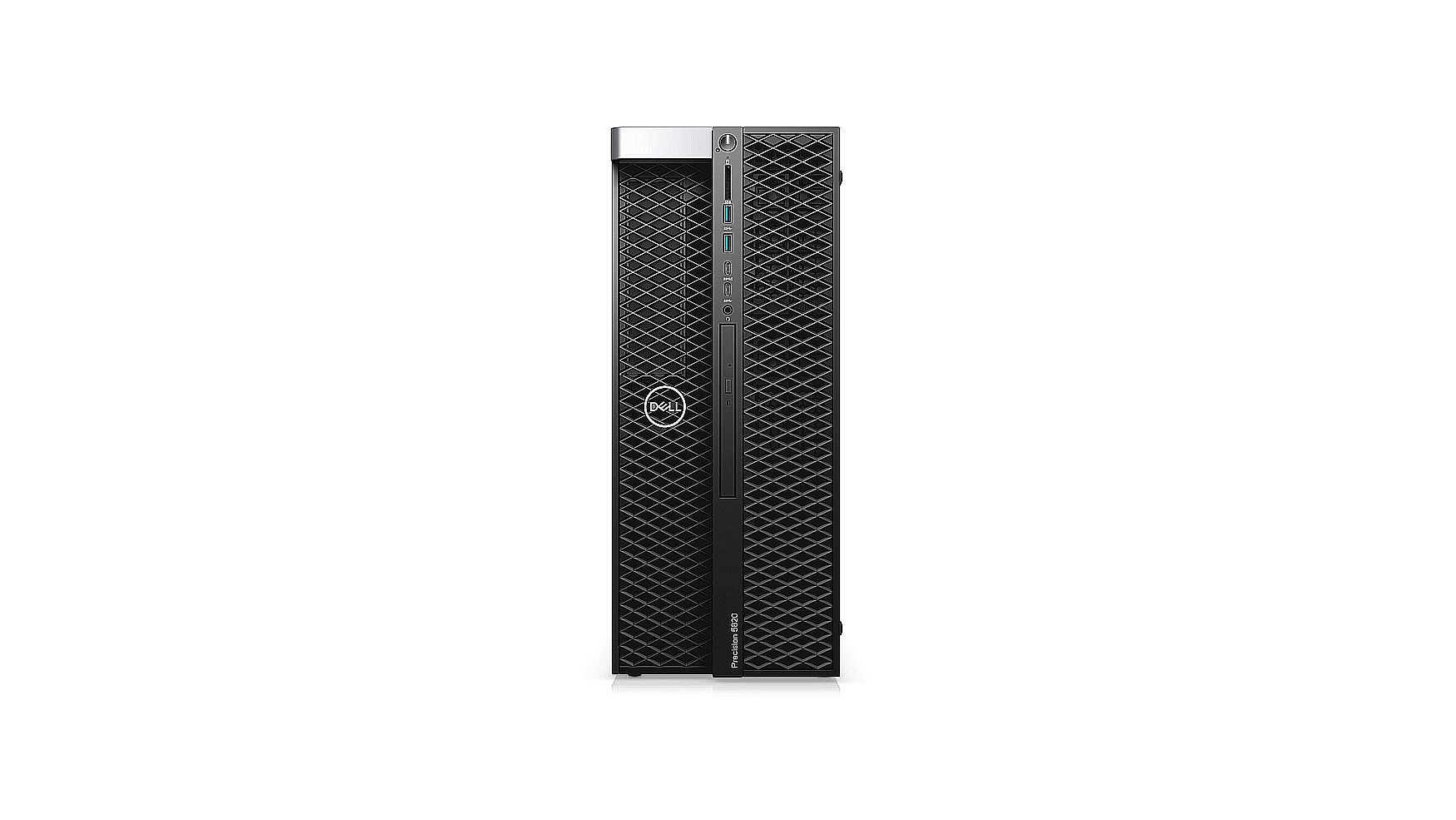
1. Dell Precision 7920 Tower Workstation (Ubuntu)
Specifications
Reasons to buy
Reasons to avoid
Every passing year Dell's Linux support has increased rapidly: it now has a support page titled "Linux on Dell desktops and laptops" that states boldly: "For over 20 years Dell has offered Linux-based workstations and laptops for businesses, engineers and scientists. A few years ago via Project Sputnik our portfolio expanded to include developer-targeted laptops and mobile workstations. These systems come with Ubuntu preloaded and are certified for Red Hat Enterprise Linux.".
Yet, even though the firm sells both workstations and laptops preloaded with Linux, it's the Linux laptops that are easier to find at online retailers. When it comes to Linux-preloaded desktops, chances are you'll need to go directly to Dell to buy.
Buying a Linux preload version is essential instead of installing Linux on top of a Windows machine if you want to keep its warranty and support. The company states on its support page that "if you purchase a computer and replace its operating system, then your warranty may require you to reinstall Windows if anything goes wrong."
The Precision 7920 Tower Workstation comes preloaded with the latest LTS (Long-Term Support) flavor of Ubuntu version 20.04. With its 10-core, 2.40 GHz Xeon processor, ECC error-correcting memory, and fast PCIe SSD, this PC provides excellent value for the money. In addition to that, there is plenty of room for upgrading and internal expansion. Since Ubuntu LTS is maintained for ten years, and official support for the preloaded version expires in 2030, this machine will serve you well for many years.
In Dell's online store, going to the configuration tab and picking Ubuntu Linux instead of Windows 11 Pro for Workstations saves you $171.12 at the time of writing.
The base configuration includes an NVIDIA graphics card with only 4GB of VRAM, but you can choose between many AMD and Nvidia graphics card options. Upgrade to a Triple AMD Radeon Pro W5700 with 8 GB of GDDR6 memory for an extra $1730. If you have an additional $10,493 to spare, you can install a triple NVIDIA RTX A6000 setup with 48GB of GDDR6 memory instead.
Although the Dell order page allows you to choose between AMD/NVIDIA dual, triple, and quad graphics card configurations, not all of these are supported by Ubuntu. You also may need to upgrade your CPU to work with multiple graphics cards.
You will receive a warning if you choose a graphics card configuration unsupported by Linux and your selected CPU in the configurator.
Storage in this base system consists of a fast 256GB PCIe M.2 SSD, but you can go up to 64TB if you fill all seven 2.5" or five 3.5" drive bays and front access storage and PCIe M.2/U.2 NVMe SSDs.
Make sure you add network card 1 Gigabit Ethernet and 10GbE dual-port NIC are available as the base system includes only the integrated NIC. Wireless cards weren't public when we tried to customize the Workstation configuration.
Best Linux mini PC
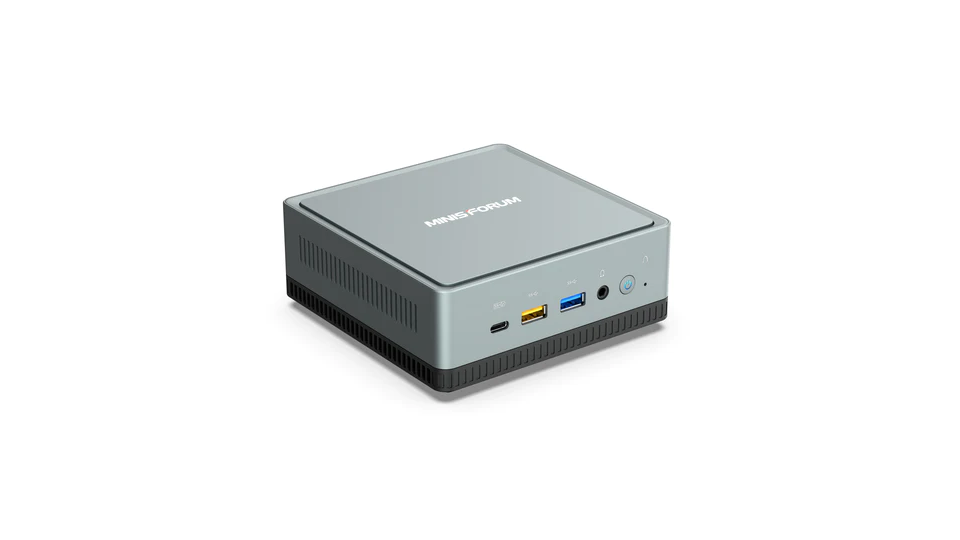
2. Minisforum DeskMini UM350
Specifications
Reasons to buy
Reasons to avoid
Minisforum has already won the hearts and minds of Linux users by releasing the EliteMini Manjaro UM700 system preloaded with Linux in January 2022. This has since been continued, but the spirit of OEM Linux lives on in the UM350.
In addition to the ease of having a Linux system working ideally seconds after pressing the power button, you get real value for money from this mini PC, as the base model retails at less than $300.
It uses Manjaro, a widespread European Linux distribution focusing on user-friendliness and accessibility. This version of Manjaro uses the graphics-rich Plasma Desktop and the Arch Linux distro as a base.
You can add software via the Pacman package manager. Still, pre-installed apps include the Firefox and Vivaldi Browsers, Okular PDF, the VLC media player, the Open Office fork LibreOffice, Steam, Skype, and Crossover One, allowing users to run popular Windows applications.
Since Manjaro is a "rolling release" distro, it means your system will always run the latest versions of the kernel and applications, and you won't have to "upgrade" to a newer version of Manjaro down the line as happens with distros that use a "point release" development model like Ubuntu.
On the hardware side, this mighty mini PC is square and smaller than a mouse pad (127×127×51.3mm). This means it works well at home for office workers, students, and creative professionals.
It looks elegant and discrete on your desk, yet you can hide it from sight if necessary, thanks to its mounting plate. Moreover, its small size and weight make it easy to transport: unplug the cables and place the computer with its power adapter in a backpack to carry it everywhere you go. Even bundled with these accessories, the weight comes to just 1.32kg (3lb)
AMD's quad-core Ryzen 7 CPU paired with its PCIe bus SSD makes Linux run smoothly. You can easily remove the computer's top cover without a screwdriver if you want to upgrade the memory or storage. Standard SO-DIMMs are used like laptops; a 2.5-inch bay is provided for an internal SSD or hard drive.
On the front of the device are a USB-C port, two USB 3.2 Type-A ports, a 3.5mm headphone jack, and a power button. There are also more USB ports on the back and HDMI and DisplayPort for connecting monitors, making it an excellent option for those who want a multi-monitor Linux system with up to three displays. Its dual-band Wi-Fi, Bluetooth, and wired 2.5 gigabit Ethernet port provide superior connectivity.
Best Linux PC for data science
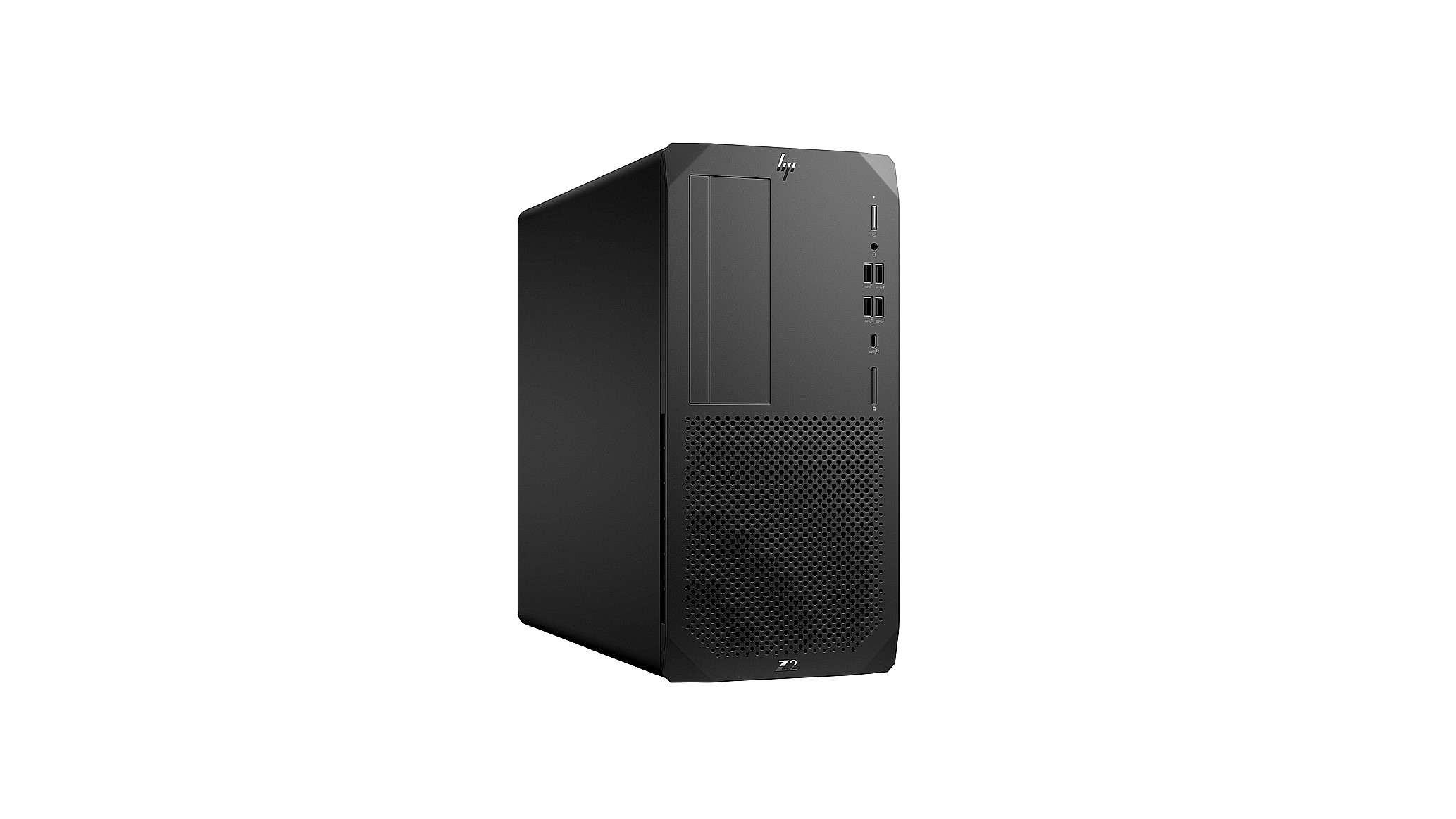
3. HP Z2 G9 Tower
Specifications
Reasons to buy
Reasons to avoid
The company, formerly known as Hewlett-Packard and now HP, released the first version of its Unix operating system, "HP-UX," 40 years ago. Unix usage peaked and then was replaced by Windows and Linux. During the rise of Linux, HP was one of the first printer vendors to implement native Linux printer drivers. It made them open source, with the influential HPLIP (HP Linux Imaging and Printing) open-source drivers project still alive today.
Additionally, HP also manufactures thin clients that run on Linux. It makes sense to expect a pioneer in Unix and Linux to be a significant player in preloaded Linux systems. But not quite. The Linux support by HP can be described as lukewarm or "depends on whom you ask." Yes, most HP servers and workstations are certified by one or more Linux vendors.
Moreover, HPE (Hewlett Packard Enterprise) has most of its enterprise servers certified for the most popular enterprise Linux distributions, SUSE, RedHat Enterprise Linux (RHEL), Oracle Linux, and Ubuntu servers. However, these choices can be expensive. If you are a small business owner looking for a desktop workstation at Amazon.com, Newegg, or B&H, to name a few popular online vendors, you will end up empty-handed. You will only be able to choose Windows preloaded options.
It is introducing "Z by HP," which has its own product managers, brand ambassadors, and Twitter account. HP aims to serve "Professional creators and power users" by delivering a "curated, personalized solution." Part of this solution is HP systems that come preloaded with Ubuntu Linux. The firm even has a FAQ file about running Linux on its devices.
It starts by saying, "Ubuntu 20.04 will be pre-installed, ready to boot when the unit is powered up". Fine, so you want to order it? What is the SKU? "The Ubuntu pre-install is a separate SKU from Linux-ready pre-install and is not dependent upon Linux-ready pre-install." The FAQ does not mention the SKU. Confused yet? So were we. But perseverance pays off. This is how we discovered the Z2 G9 at HP's US shop, where Ubuntu appears as an option under Windows 11 when you click "Customize & Buy."
With Ubuntu, the price is discounted by $215, making this system an absolute steal. Don't choose "Linux ready" because that is another thing. According to HP's online FAQ, "Linux Ready" does not equal a pre-install of Ubuntu, and if you choose that option, you get a system without a real OS. While the FAQ claims "Linux ready" is the "lowest possible cost" option, it's the exact cost of choosing the Ubuntu Linux 20.04 option. Therefore, please select "Ubuntu Linux 20.04", not "Linux ready." Scroll down to add RHEL (Red Hat Enterprise Linux) as a second OS for an additional $7.
The HP Z2 G9 is a stylish mid-tower, single-CPU entry-level workstation. Depending on your choice, you can stay with the six-core Core i5 or upgrade to a 24-core i9. During HP's order process, you can choose from GPUs, memory -ECC for Xeons - up to 128GB of RAM in four DIMM slots, and storage options.
As this build is customizable, the specs you see are the configuration most widely available for the Z9 at web retailers (one that ships with Windows).
There are three M.2 slots on the mainboard, one occupied by the system's SSD. Besides the installed video card, there are three other available PCI slots. You can also add a 5.25-inch optical drive and a removable 2.5-inch drive in addition to the two 3.5-inch SATA bays.
Quickly remove the side panel by flicking a lever, and its Flex-IO panel allows you to add additional ports such as HDMI and VGA to the system with little interface modules. If purchased directly from HP, these can be added to the system configuration or purchased later from other online retailers like Newegg and CDW; search for "Flex IO."
The base model has two DisplayPort 1.4 ports attached to the integrated video, plus any additional video outputs your video card provides -usually several DisplayPort ports. There are six USB-A ports on the back, split among USB Gen 2, 5Gbps Gen 1, and legacy USB 2.0. Audio input and output are also available. Additional 'Flexible Port' options allow you to use other ports such as USB 3.1 and HDMI.
The base model doesn't have Wi-Fi support, but you can add an Intel Wi-Fi 6 AX211 + Bluetooth 5.2 card for just $20. Pay an extra $8 for an external antenna.
You can also pay an extra dollar to include HP's Data Science Software Stack, which has the latest versions of Python and R, along with preloaded environments such as Anaconda, PyCharm, Visual Studio, and GIT, in addition to Data Science-specific packages such as TensorFlow, XGBoost, Keras and PyTorch. Rapids data science library, docker containers, and Nvidia drivers are also included.
If you want to use the Software Stack in Ubuntu fully, you'll need to upgrade the base model to have a graphics card. Prices start from $160 for an NVIDIA T400 with 6GB of GDDR6 memory.
Even if most data scientists and students could manually install these apps, having them pre-installed along with Linux provides a significant advantage for number crunchers, statisticians, Linux programmers, and data science students.
There's no reason why this Ubuntu OEM version of the Z2 couldn't quickly sell by the thousands at retail alongside its Windows counterparts. Failing that, it would be nice to have a way of converting a Windows preloaded system into the Ubuntu preload version while retaining support and warranty. In any case, HP needs to improve its distribution because this is a killer Linux PC.
In conclusion, HP needs to improve how its customers can purchase Linux-preloaded machines without much obfuscation and with better retail distribution. Getting back on topic, Z by HP offers data scientists a Ubuntu installation with full GPU support and many developer tools and pre-installed libraries, making this Z2 G9 a great option if you can get one.
Best Linux PC for developers
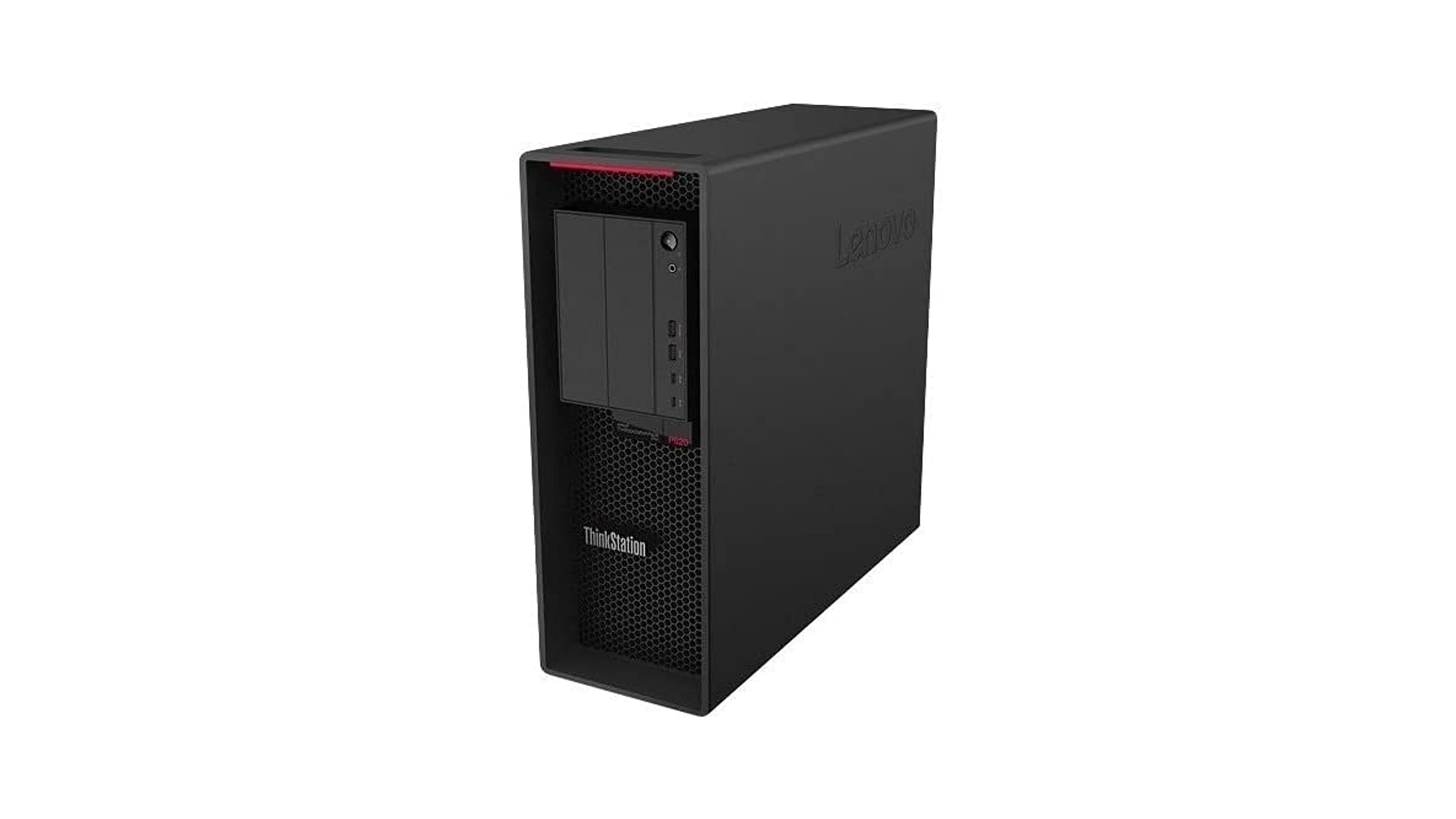
4. Lenovo Thinkstation P620
Specifications
Reasons to buy
Reasons to avoid
By mid-2020, Linus Torvalds made unintentional headlines when he switched from an Intel to an AMD Threadripper CPU as his personal development system after fifteen years of only using Intel processors. He stated at the time that test builds of the Linux kernel were now three times faster than before.
The Lenovo ThinkStation P620 is a compact workstation that will let your software builds be as fast as Linus' own. A little smaller than a typical ATX enclosure, it sports a flexible, expandable design that will keep you productive for years. AMD's Threadripper CPU, with twelve cores, is incredibly well suited for kernel developers and programmers who compile large code bases as build systems provide parallelization to fill up all the available cores. Regardless of your compiler, programming language, or IDE used, the more CPU cores, the faster things go, especially when running several things simultaneously.
The Thinkstation P620 exhibits Lenovo's attention to detail with its front handle, which makes it easy to plug cables or perform system maintenance, and the faultless interior that allows you to replace or add cards without a screwdriver.
Its 12-core CPU runs at a speed of 4 GHz and may go up to 4.30 GHz. With its eight memory channels, its maximum capacity is 2 TiB using eight 256 GiB LRDIMMs or 3DS RDIMMs.
Lenovo surprised Linux advocates by late 2020 when it announced the availability of an Ubuntu 20.04 preload option for several laptops and desktop systems, with the ThinkStation P620 at the bottom of the list.
You can add storage to your purchase for a slight price difference, such as a 2TB PCIe M.2 SSD. It can hold up to five SATA HDDs, which is quite a bit if you fill it with 10TB drives.
Lenovo's online store offers several configurations, the cheapest with 256GB of SSD storage and an AMD Radeon Pro graphics card with 4GB of VRAM.
For an extra $130, you can swap out the base AMD Radeon Pro for an NVIDIA T1000 with 4GB of DDR6 memory instead. If you can spare the cash, you can upgrade to AMD Radeon Pro W5500 with 8GB GDDR6 of memory for an extra $470.
There is nothing to dislike about this system, is there? There are lead times. A parts shortage across the industry has affected Lenovo, and your custom-built system can take weeks to arrive.
Best Linux PC for power users
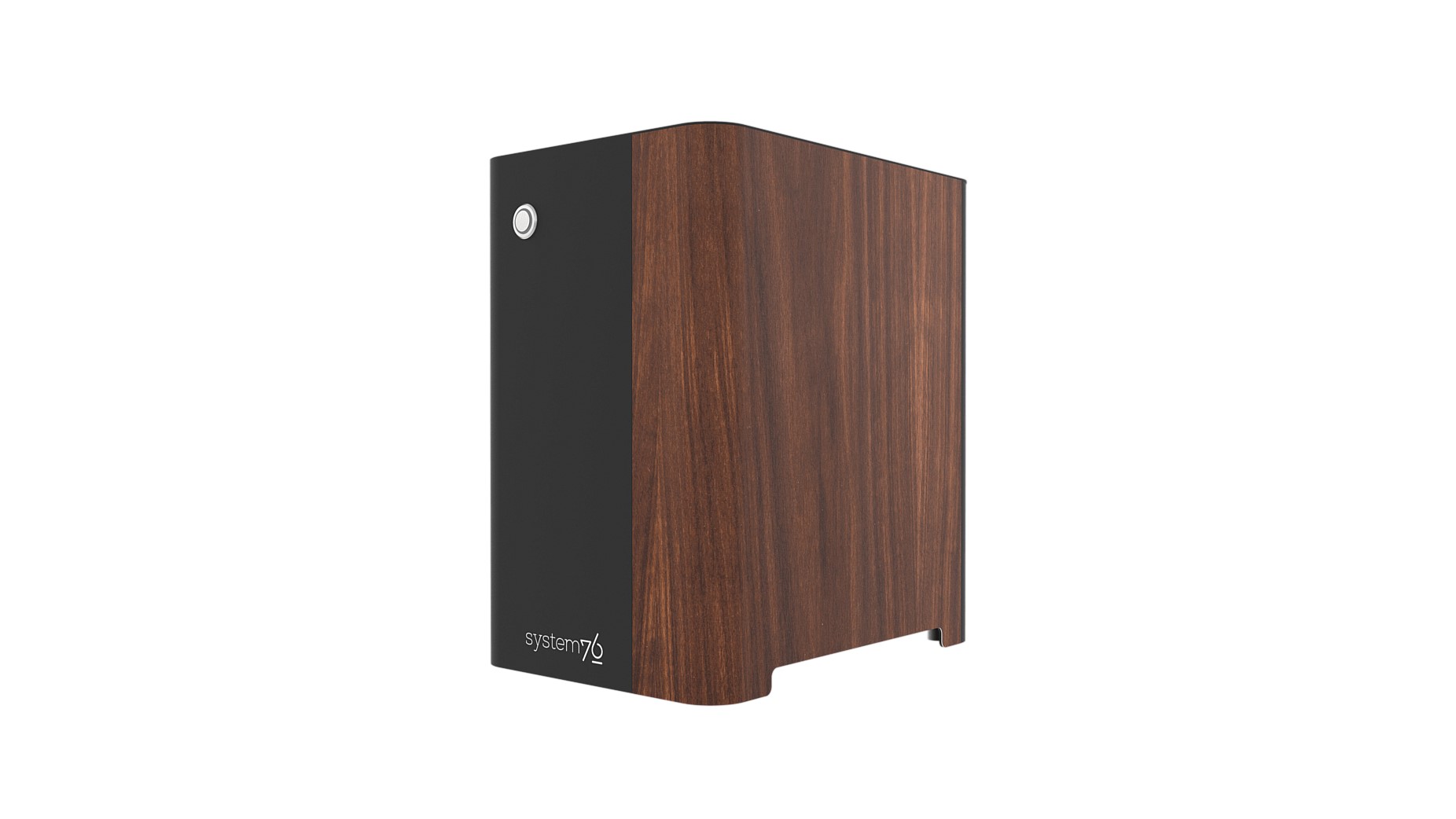
5. Thelio Mira (System 76)
Specifications
Reasons to buy
Reasons to avoid
Get to know System76 if you haven't already. Carl Richell and Erik Fetzer founded the company, which sold computers with Linux preinstalled in 2003. Located in Denver, Colorado, the company creates Linux systems with a unique style and attention to detail that cater to the needs and desires of Linux users.
System76 is unique in making its designs open source. All specifications and drawings can be downloaded from GitHub. Standard parts are inside, but they developed their own Linux-friendly IO board, which controls, among other things, the speed of the cooling fans.
The lions are a family of machines of many different sizes, all with the same look. In between the base Thelio desktop and the Thelio Major, you will find the Thelio Mira. Due to its wood aesthetics, the Thelios can be mistaken for a speaker if viewed from the side.
With Pop!_OS, the company offers its own Linux distribution based on Ubuntu with a modified Gnome GUI. Nevertheless, they do not force-feed it to their customers; you can choose a standard Ubuntu installation. The company recently introduced its mechanical keyboard, dubbed "Launch," and available for purchase through its website. While some Thelia Mira PCs are available at third-party resellers, the firm's idea is to buy directly to tune it to your needs.
Directly from their Colorado factory, System76 custom-builds your system and ships it via UPS. For $99, Canadian customers can purchase warranty shipping coverage, which covers all shipping back and forth for service. Customers in the USA can extend their warranty to two years by paying an extra $149 or three years for $249. They can also pay an additional $9 and receive a shipping label to donate their old computers to be responsibly recycled.
This firm's online configurator is on par with heavyweights like Dell or Lenovo. The tailor-like design begins by selecting the system model, then the CPU brand: AMD or Intel. AMD costs $399 more than Intel.
The system then lets you pick the color and style of your case to match your desk or room furniture: walnut brown, birch, Neptune Blue, Martian Red, Farout Pink, and Etched PCB traces. You can also order your own DIY "accent kit" free of charge in case you want to choose your own or if you want to change. Accent colors can easily be swapped out.
Afterward, you can add RAM, storage, and GPUs. The final step involves accessories and warranty.
The Intel edition comes with an ASUS ROG STRIX Z590-A motherboard. The AMD Ryzen system comes with the Gigabyte X670 Aorus Elite AX—both use "non-free" firmware from System76.
The Intel edition's Z590-A is an Asus gaming motherboard with three M.2 slots for SSDs and four PCIe 4.0 slots (3 x16, one x4).
The CPU in our selected system is a powerful Intel Core i9-13900KS with 24 cores, 16GB of DDR4 RAM, and an Nvidia GeForce RTX 3070 Ti GPU. PCI Gen.4 SSDs provide storage, and we selected a system with 1TB of storage. This brought the price up to $2,532 before tax. Still, Buying direct lets you add additional drives as needed.
Connectivity is paramount thanks to its WiFi 6 and Intel 2.5 Gb Ethernet. It features two USB 3.2 Gen 2 ports and a USB Type-C port, with HDMI 2.0 and Displayport 1.4 outputs connected to the mainboard's built-in video. Visit the company's Tech Specs sub-site to delight yourself with tech specs sans PDF.
The manufacturer includes Lifetime support and free shipping (US) for repairs during the warranty period. There's also a lively System76 subreddit to discuss the firm's systems.
Best dual-boot Linux PC
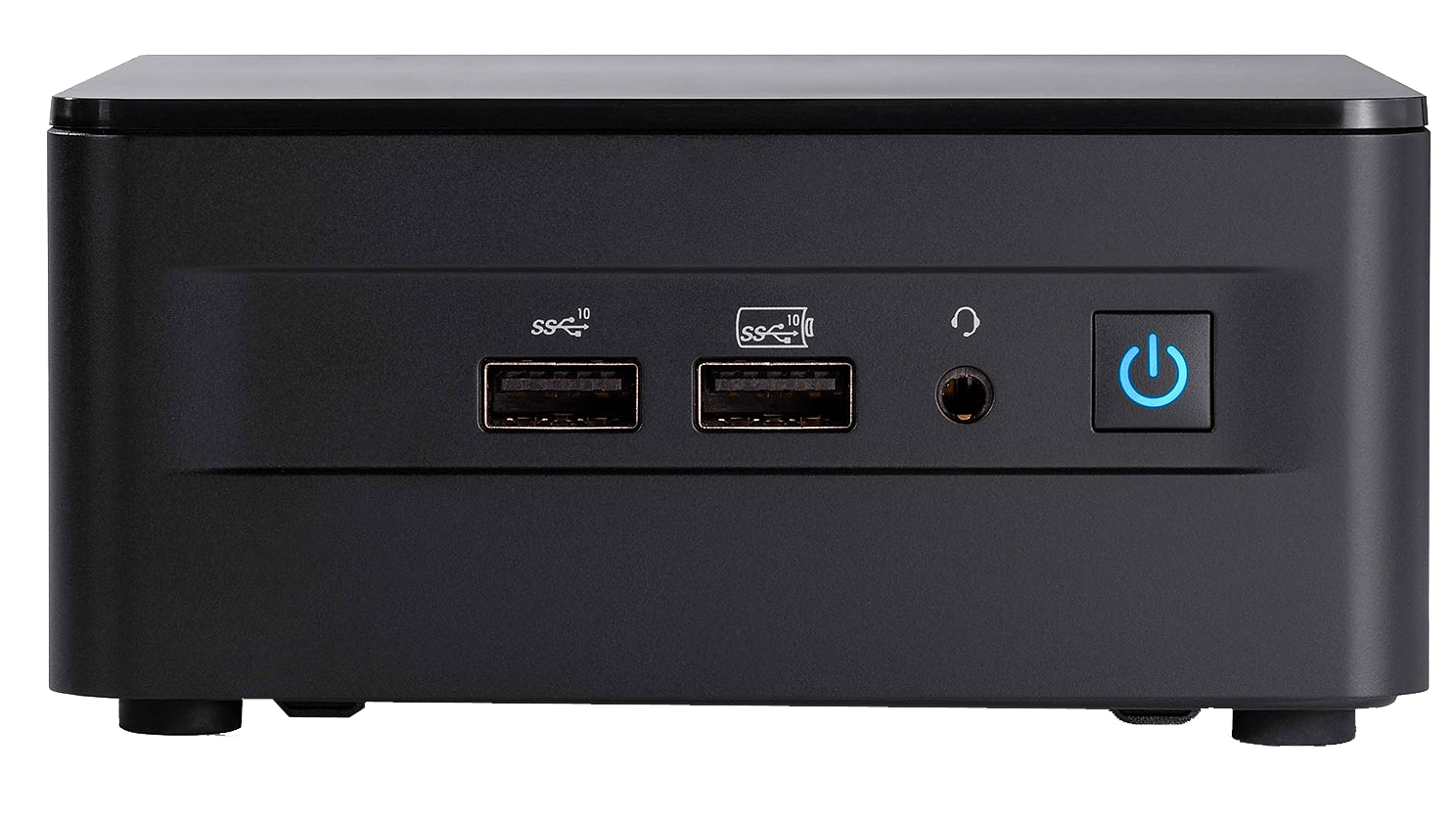
6. Intel Mini PC 12th Gen
Specifications
Reasons to buy
Reasons to avoid
There are desktops with Linux preloaded and laptops with Linux preloaded, but what happens when you prefer an All-in-One computer? In that case, you should head to Belgium.
The folks at Ubuntushop in Belgium offer a range of Linux Notebooks & PC, including the Intel Mini PC. They've been in business for over 20 years and are certified OEM installers of Ubuntu/Linux-mint + derivatives, Manjaro, and Debian.
If you visit their website, one of your first choices is which version of Linux you want to be preinstalled on your machine. You can choose from Ubuntu and its variants (Kubuntu, Lubuntu, and Xubuntu), Manjaro, Elementary OS, Debian 11, Linux Mint, any many more. If you don't see the OS you want, you can ask for another distro when you place your order.
You can also buy displays from 22" to 27". It contains an Intel 10-core i3-1220P, nothing spectacular but adequate for most operations. Memory is sufficient at 16GB, though you can customize it to 64GB, while a 512GB SSD provides storage. You can upgrade this to 2TB for an additional €180. You can also add a secondary SSD of 1TB, 2TB, or 4 TB.
The system offers a built-in Gigabit Ethernet port and supports Intel Wi-Fi 6 AX200. It's also compatible with Bluetooth 5.0 for speakers, keyboards, and pointing devices. This is probably just as well, as there's only one 3.5mm jack for headphones and microphones. Additionally, it offers two USB 3.0 ports and two USB 2.0 ports. This likely won't be enough for most users, so you may have to consider buying a powered USB hub.
The Amnesic Incognito Live System, or Tails, is an anonymous and security-focused Debian-based Linux distribution. Kodachi is another Debian-based distro with an even more extreme security attitude: it changes your MAC Address immediately. All network traffic goes through the TOR (The Onion Routing) network, VPN support, and DNS encryption.
The firm accepts orders from all countries and delivers worldwide within one to two weeks. It claims to send out products in stock within three days. The keyboard layout can be chosen from a menu on the order page and is available in USA-intl, English, UK, Belgian, French, German, Portuguese, Italian, and Spanish. Non-EU customers do not pay VAT tax, and the web cart prices are discounted by 21% when entering a non-EU shipping address.
Best budget Linux PC
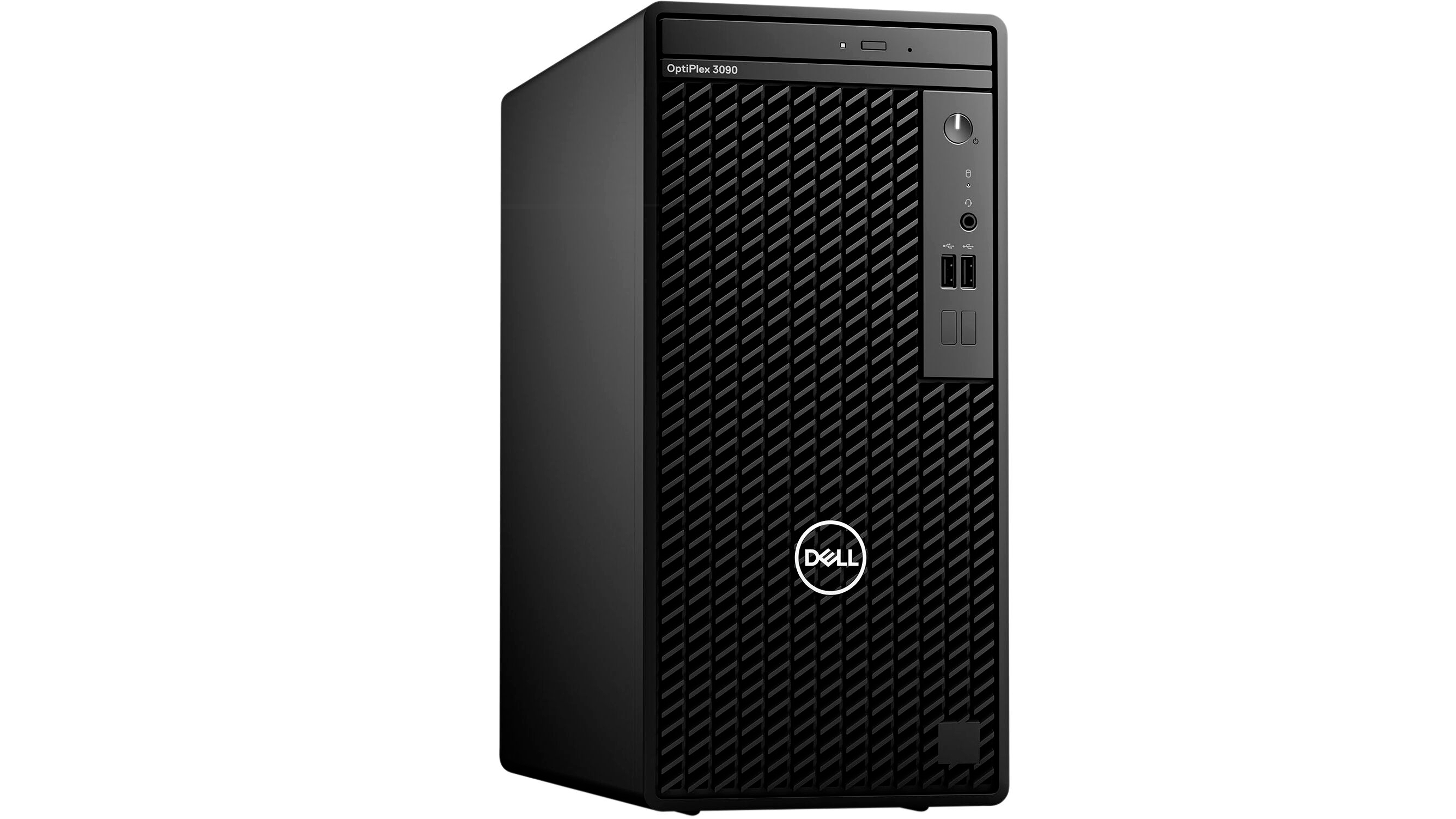
7. Dell OptiPlex 3090
Specifications
Reasons to buy
Reasons to avoid
There is always someone else willing to step up to the plate and pre-load Linux when PC manufacturers fail to do so. This is the case with ME2, a computer reseller from Oregon that offers customizable computer configurations and ships worldwide. The Dell OptiPlex 3090 Desktop is professionally upgraded by the company, offering a one-year warranty.
The Optiplex 3090 model we reviewed features an Intel i3 CPU with four cores and 4 GB of RAM, although this can be upgraded to 64 GB. Its mainboard has Intel UHD 750 Graphics 750, and a 1TB hard drive completes its configuration. The Achilles heel of this system is booting from a hard drive because SSDs are commonplace now, and booting from a hard drive is not fast. However, You can customize your machine to use a 1TB PCIe SSD for an extra $150. The quality of Dell hardware it's based on makes it a good choice for a base system, given its very affordable price.
It has 2 USB ports in the front and four in the back, HDMI and DisplayPort video outputs, and Gigabit Ethernet.
Best Linux PC: Frequently asked questions
Should I get a Linux PC or install a distros on an existing computer?
You have a number of options for getting a PC running Linux. The first option is to build your own computer - for more on that, see our guide how to build your own PC. Alternatively, you can buy a PC preloaded with Windows, wipe the OS, then flip a coin to choose a Linux distribution, cross your fingers, and hope for the best, but good results are not guaranteed.
The easiest way is to buy a Linux-compatible PC that comes with the software already installed or that has already been tested for Linux compatibility. On these machines, Linux becomes as smooth as using a PC with Windows.
How to choose the best Linux PC for you
When selecting the best Linux PC for you, you'll want to consider various technical aspects, like the distro it runs, CPU, GPU, RAM, storage, and ports.
Some Linux PCs are better suited for specific tasks, like data science, so you'll want to pick the right ones based on your requirements. If you feel your PC needs will change with time, you'll want to select options offering decent expansion and upgrading options.
Look out for the fan noise, internal design, warranty period, and pricing, among other things.
Don't be afraid to search online to look for reviews. Ubuntu also offers a certification program - choose a computer they've approved to be sure it'll play nicely with the OS.
How we chose the best Linux PCs
Our team of expert reviewers have tested out hundreds of the best business laptops, best business computers, and best mini PCs across just about every sort of operating system. So, we know what to look out for when choosing the best Linux PCs - and what to avoid.
We looked at the market offerings for Linux preloaded desktops, which aren’t that many, to be honest with you. Then we sorted our list of systems based on hardware specs, and picked usage scenarios where they would fit better.
Some categories were obvious: for instance the best for data science category. It was driven by HP’s own Ubuntu Linux software stack that caters to the needs of the staticians and number crunchers; no system can come close to that level of flexibility.
The mini PC category was driven by UbuntuShop's own series of tiny Linux machines. The best overall and best for developers categories were a contested race, as business level workstations is a market where Linux has had good compatibility historically. System76 steals the race for the best for power users category by basically inventing a new concept PC, together with their own aesthetics and its own Linux distro.
Read more on how we test, rate, and review products on TechRadar.
Get in touch
- Want to find out about commercial or marketing opportunities? Click here
- Out of date info, errors, complaints or broken links? Give us a nudge
- Got a suggestion for a product or service provider? Message us directly
- You've reached the end of the page. Jump back up to the top ^
Sign up to the TechRadar Pro newsletter to get all the top news, opinion, features and guidance your business needs to succeed!
Fernando Cassia is a freelance Tech Writer living in Buenos Aires, Argentina. He has also written for Mike Magee's The Inquirer, Theo Valich’s BSN, TechEye, and other online publications. When he's not chasing Phishers, he's procrastinating on Twitter. Find him at @fcassia